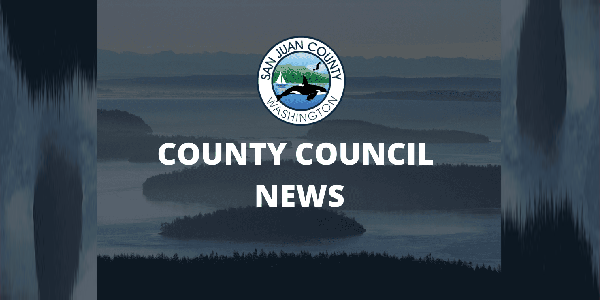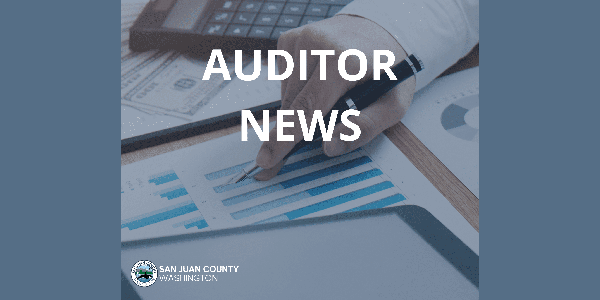Completion of project results in additional “Focus Grants” process
“The needs assessment project has been a journey closer to the heart of the community. It has illuminated the community’s pride in and love for our island.
It has also illuminated our shared need to act to sustain our quality of life on Orcas. The process of meeting in and of itself has introduced people to others in their sector, provided a safe place and framework to discuss issues, and focused attention on needs known, and those that are largely unseen. The needs assessment has been a worthwhile way to begin a new journey toward our shared support for our island community.”
Diane Berreth, President of the Orcas Island Community Foundation, gave the following report to attendees at the annual OICF luncheon on September 23, 2011 at Discovery House, Rosario:
Over the past 18 months the Community Foundation has engaged over 100 community members in a series of meetings to discuss unmet needs on Orcas Island.
These community members attended meetings in one or more of eight sectors: Arts and Culture, Early Childhood, Economy and Transportation, Education, Environment, Health, Housing, and Social Services. The written notes from these brainstorming meetings were then analyzed by a planning consultant, Jessica Hallenbeck, and the findings have been published in this report to the community that she wrote.
You’ll receive a written copy of this report when you leave; it will also be available to the community on-line [at www.oicf.us].
Why did we do this? I’m tempted to say that it’s because we didn’t know any better — it turned out to be a massive amount of work! But, in fact, we did it as an organization because we wanted to move beyond our own individual experience and history in making decisions on how to support our community. We wanted to improve our decision-making by having more and better data about islanders.
We did it to better live out our mission of “enhancing and preserving the quality of life on Orcas Island.” Many of us who live here are aware that some of our community members are hungry, some are without jobs or homes, some are struggling to be able to continue to live here. And some have left. We all make up the community, and when some of us are struggling it frays the fabric that knits us all together. These are difficult times, and we need to know how best to use the resources we have. And that why we did this needs assessment.
What did we do? Our report explains what we did in detail, so I’ll be brief. But before I outline it I’d like to acknowledge and thank Moana Kutsche, who started us on this journey under her presidency. We would not have engaged in this work without her far-sighted leadership.
We began with the first of eight sector meetings in 2010, inviting a broad range of stakeholders to each. We asked the same questions at each meeting:
- What is working well on the island in terms of meeting your sector’s needs?
- What community needs related to your areas of service are not being fulfilled?
- What feedback do you receive on unmet needs from the people you serve?
- What are the primary causes of unmet needs in your sector for Orcas Island?
We transcribed what we heard, to the best of our ability, and shared our transcripts with both those who attended a meeting, and those who were invited but didn’t attend. There were limits to our approach: only what was recorded was analyzed; not all stakeholders were equally represented; some well-known issues did not surface; and some attendees may have been reserved about talking to others in their sector or to us.
What did we learn? There were three over-arching themes across the sectors:
- Coordination and Cooperation, both internal and external
Every sector identified cooperation — both internally and externally — as being a central unmet need. This surprised us on our small island. External coordination included cooperation among organizations, sectors, communities, and different levels of government. Improved external coordination is needed to ensure that clients can seamlessly access a range of services within a sector.
- Education and Training
Several sectors identified a need for education and training, both for staff and for residents. In particular, there is a need for English Language Learners (ELL) support and Spanish language classes.
- Community Perceptions, Outreach, and Support
There is a need to reach out to segments of the population not currently accessing services, including new residents, families that speak English as a second language, and younger families, who often cannot access health services or attend arts and cultural events. There is also a need for more community-based support, including support groups and a community response system, for people struggling with mental health issues, abuse, or addiction.
What did we learn within the sectors? Much of what we learned was not a surprise, but sometimes the priorities were, and some needed services, such as in mental health and substance abuse areas, were not known to many of us. Most of the sectors needed:
- Funding for inter-agency training, workshops, and events, building community awareness and fostering cooperation
- An inter-agency coordination role and/or inter-agency space to ensure better coordination between agencies, streamlining client services
- A website that links organizations and also serve as a “volunteer bank,” with a support and discussion forum
Let me share some examples of priority needs from a few sectors.
For health: Senior health services, mental health services, and substance abuse support services are limited. There is also a need to encourage preventative health care and provide language translation services for medical appointments.
For early childhood: There is a need to identify and reach out to new residents and provide families with a central place to access services. This location could also house a clothing and child gear bank and childcare on evenings and weekends.
And for economy: Funding for short and long term business financing, planning, and training is needed.
What’s next? We plan to share our report broadly with the community and the sectors. We plan to continue assessing needs going forward, either by more conversations or a survey that would engage islanders who are using or are in need of services.
We have already completed the directory of community service providers, and we’re working on electronic list serves to help people communicate within sectors.
Focus area grants initiated
We plan to expand our grants process. We will continue our current grants program, which serves many of you well. In addition, we will add a program for focus area grants with our trustees selecting one or more focus areas of unmet needs annually. For the selected focus area, we’ll convene stakeholders and donors, support proposal development, offer funding for grants that may be larger and longer, and importantly, that will focus on IMPACT and best practice.
The new focus area grants will not affect the traditional program. This is a pilot year for the focus area grants, and we are working now to identify the focus area(s) and the available funds.
For me the needs assessment project has been a journey closer to the heart of the community. It has illuminated the community’s pride in and love for our island. It has also illuminated our shared need to act to sustain our quality of life on Orcas. The process of meeting in and of itself has introduced people to others in their sector, provided a safe place and framework to discuss issues, and focused attention on needs known, and those that are largely unseen. The needs assessment has been a worthwhile way to begin a new journey toward our shared support for our island community.
**If you are reading theOrcasonian for free, thank your fellow islanders. If you would like to support theOrcasonian CLICK HERE to set your modestly-priced, voluntary subscription. Otherwise, no worries; we’re happy to share with you.**







Thank you so much Diane and all the members that worked on this project.